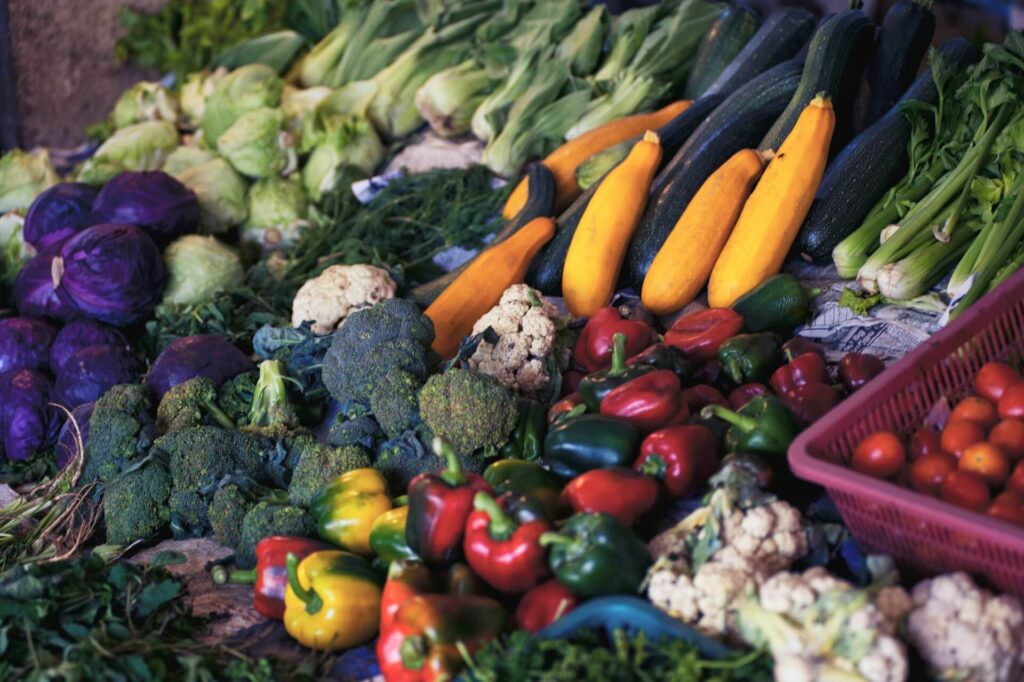
In today’s world, the word “organic” is more than just a buzzword – it represents a movement towards healthier living, environmental sustainability, and conscientious consumerism.
As eco-conscious consumers, sustainable living advocates, and health enthusiasts, you may find yourself gravitating toward products labeled as “organic.”
But what does that label truly mean? This post aims to demystify organic labels, providing you with the knowledge to make informed decisions in your quest for a healthier, more sustainable lifestyle.
The Basics: What is Organic?
The term “organic” refers to the way agricultural products are grown and processed. Organic farming practices are designed to sustain and enhance the health of ecosystems and organisms.
This means avoiding the use of synthetic fertilizers, pesticides, genetically modified organisms (GMOs), sewage sludge, and ionizing radiation.
Instead, organic farming relies on natural processes and materials to promote soil fertility, biological diversity, and ecological balance.
Key Principles of Organic Farming
- Ecological Balance: Maintaining harmony between farming practices and the natural environment.
- Soil Health: Building and maintaining healthy soils through crop rotations, cover crops, and composting.
- Biodiversity: Promoting a variety of species within the ecosystem to enhance resilience and productivity.
- Animal Welfare: Providing humane treatment and access to the outdoors for livestock.
- Prohibition of GMOs: Ensuring that all seeds and inputs are free from genetic engineering.
Decoding Organic Labels
Understanding organic labels can be a bit challenging due to the variety of certifications and standards worldwide. However, a few key labels stand out and are recognized globally for their rigorous standards.
USDA Organic (United States)
The USDA Organic label is one of the most recognized organic certifications. Products bearing this label must meet strict guidelines set by the United States Department of Agriculture. Here’s what it entails:
- 100% Organic: Products must contain only organically produced ingredients and processing aids.
- Organic: Products must consist of at least 95% organically produced ingredients. The remaining 5% must be non-GMO and approved substances.
- Made with Organic Ingredients: Products must contain at least 70% organic ingredients. These products cannot carry the USDA Organic seal but can list specific organic ingredients on the packaging.
EU Organic (European Union)
The EU Organic label signifies compliance with European Union regulations for organic farming and production. Key requirements include
- No synthetic pesticides or fertilizers.
- No GMOs.
- Strict animal welfare standards.
- Transparent labeling to ensure traceability.
Canada Organic
The Canada Organic label signifies that a product meets the Canadian Organic Standards. Similar to the USDA, products must be made with at least 95% organic ingredients to carry the label.
Other Notable Certifications
- Australia Certified Organic (ACO): Australia’s leading certification for organic products, ensuring adherence to strict organic farming and processing standards.
- Japan Agricultural Standard (JAS): Japan’s certification for organic products, focusing on the prohibition of synthetic pesticides and fertilizers.
What Do These Labels Mean for You?
When you see an organic label on a product, it generally means that the product has been produced following specific organic standards. This usually translates to fewer synthetic chemicals, support for sustainable farming practices, and potentially higher nutritional value.
However, it’s important to note that organic does not automatically mean “healthier” or “more nutritious” – it simply means that the product adheres to certain production standards.
Benefits of Choosing Organic
- Healthier for You: Organic products often have fewer pesticide residues and may contain higher levels of certain nutrients.
- Better for the Environment: Organic farming practices promote soil health, reduce pollution, and enhance biodiversity.
- Supports Animal Welfare: Organic standards ensure more humane treatment of livestock.
- Sustainability: By supporting organic farming, you are contributing to a more sustainable food system.
Common Misconceptions About Organic Labels
Myth 1: Organic Means Pesticide-Free
While organic farming does prohibit synthetic pesticides, it does allow for the use of certain natural or non-synthetic pesticides. These are generally considered less harmful, but they are still used to manage pests.
Myth 2: Organic is Always Better for the Environment
While organic farming has many environmental benefits, it’s not without its challenges. For example, organic farming often requires more land to produce the same yield as conventional farming. Balancing these factors is crucial for true sustainability.
Myth 3: Organic Food is Always Healthier
Organic foods can be more nutritious, but this isn’t guaranteed. The nutritional content of food depends on various factors such as soil quality, farming practices, and food handling procedures.
Therefore, it’s essential to maintain a balanced diet that includes a variety of foods, whether organic or not.
How to Make Informed Choices
Making informed choices involves looking beyond the label. Here are some tips to help you navigate the world of organic products:
- Understand the Labels: Familiarize yourself with the different organic certifications and what they entail.
- Read Ingredient Lists: Organic packaged foods can still be highly processed. Pay attention to ingredient lists and choose whole, unprocessed foods whenever possible.
- Shop Locally: Buying from local farmers’ markets can provide fresher options and support sustainable farming practices in your community.
- Prioritize: If budget constraints limit your ability to buy organic, prioritize purchasing organic versions of the most pesticide-laden fruits and vegetables, known as the “Dirty Dozen.”
Conclusion
Understanding organic labels is crucial for making informed choices that align with your values and health goals. While the organic label signifies adherence to strict standards, it’s not a silver bullet for health or sustainability.
By educating yourself and looking beyond the label, you can make choices that truly benefit you, your community, and the planet.
Whether you’re drawn to eco-conscious living, passionate about sustainable agriculture, or simply looking for ways to prioritize your health and well-being, there’s never been a better time to embrace the knowledge.
By taking small steps each day and staying curious, you can pave the path toward a more serene and fulfilling existence in the Serenity Universe.
We hope you found this guide helpful. If you have any questions or want to share your experiences with organic products, please leave a comment below. Let’s continue the conversation on understanding what organic labels mean!
Last modified: March 23, 2025








